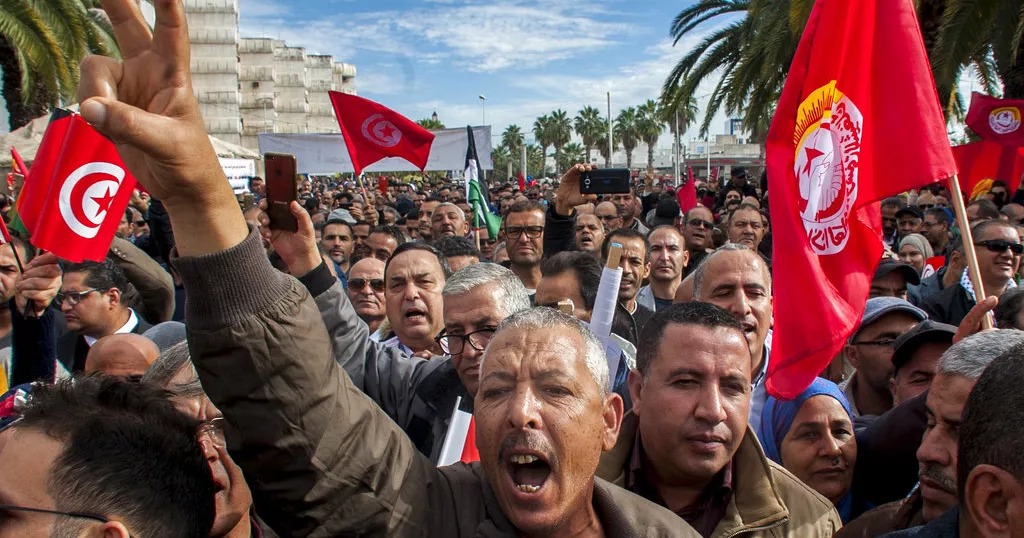
Long queues formed at cash machines in cities including Tunis, but many customers said the machines were already out of service. The disruption added to daily difficulties faced by Tunisians, who are dealing with soaring prices and shortages of essential goods.
“We are struggling with everything. Many medicines are missing, some basic items are scarce, the cost of living is extremely high, and now we cannot even access our money,” said Imen Ben Slama, one of those affected.
The strike was organised by the influential UGTT trade union after negotiations with the banking council, which represents both public and private banks, failed to reach agreement on pay and working conditions. The union says inflation has severely weakened workers’ purchasing power and is calling for what it describes as urgent adjustments to wages. Government officials did not immediately comment.
The scale of the walk-out underscores the continuing strength of the UGTT in Tunisia’s political and economic landscape. The union has played a central role in major national negotiations over the past decade.
The strike comes at a time of increased political tension. President Kais Saied, who has consolidated power since he began ruling by decree in 2021, has been criticised by civil society groups and international observers. Several government critics have been arrested in recent months, and last week authorities suspended the activities of three non-governmental organisations.
For many ordinary Tunisians, the immediate concern remains daily survival, with wages failing to match rising costs and basic services becoming increasingly difficult to access.
